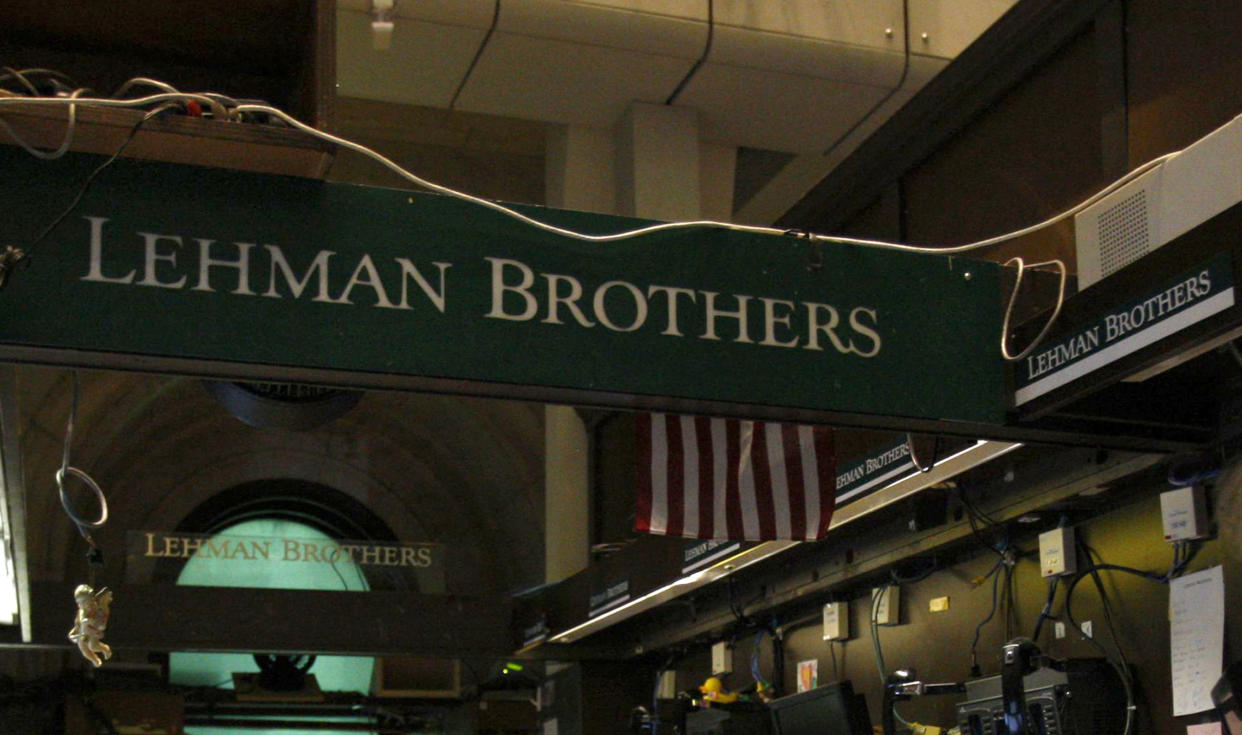Ex-Morgan Stanley CEO: 'I think risk management has been taken to another level'
The possibility of a global recession has triggered comparisons to the 2008 financial crisis, caused in part by the downfall of banking giant Lehman Brothers. But financial institutions have gotten better at managing risk since then, says former Morgan Stanley CEO John Mack.
“If you look at the securities business within that environment, I think there's much more discipline today than you go back 20 years ago, or especially 30 years ago. I think risk management has been taken to another level,” said Mack, who led Morgan Stanley during the financial crisis.
In 2010, Congress passed a Wall Street reform law known as Dodd-Frank that ramped up banking regulation to reduce the type of risk-taking that fueled the housing bubble at the heart of the Great Recession. In 2017, S&P Global Market Intelligence reported that compliance costs spiked after the recession due to Dodd-Frank. Forty-nine percent of banks surveyed said costs tied to complying with regulations had gone up 20% in the seven years after Dodd-Frank became law.
Congress has since rolled back parts of Dodd-Frank, exempting smaller banks from some provisions, but many key components such as much of the Volcker Rule remain.

“I think the death the casino kind of things that happened 20, 30 years ago, when I was directly involved, I think that's been curtailed,” says Mack, who has a new book, “Up Close and All In: Life Lessons from a Wall Street Warrior.” “I think boards are much more involved than they were when I first got into the securities business.”
In discussing past risk-taking, Mack cited John Gutfreund, a former CEO of Salomon Brothers who turned the private company into a public corporation in the late 1970s. Gutfreund eventually resigned after Salomon Brothers was caught making illegal bids for Treasury bonds.
“Let’s go back to John Gutfreund, who was a very powerful guy, and outspoken and very talented,” Mack said. “They ran these companies, even though they were public companies, or have major shareholders they ran is I'm in charge, I'm running it, I'm gonna do what I think's right. There's nothing wrong with that, as long as your board is on board with you doing that."
After departing Morgan Stanley in 2001, Mack returned and became CEO in 2005. When then the housing bubble burst, the firm paid a $9.4 billion write-down on subprime investments, according to The New York Times.
“We had huge losses. So, I think the setup today is exactly what it should be. I think the Fed needs to be more involved, SEC is more involved,” Mack said. “I also think the level of regulatory diligence is much better than it was 25 years ago.”
Mack joined Morgan Stanley in 1972 and expanded the firm from 300 to 50,000 employees over four decades, according to Simon & Schuster. He left the company in 2009 and recently announced that he is suffering from dementia.
Dylan Croll is a reporter and researcher at Yahoo Finance. Follow him on Twitter at @CrollonPatrol.
Click here for the latest technology business news, reviews, and useful articles on tech and gadgets
Read the latest financial and business news from Yahoo Finance
Download the Yahoo Finance app for Apple or Android
Follow Yahoo Finance on Twitter, Facebook, Instagram, Flipboard, LinkedIn, and YouTube
